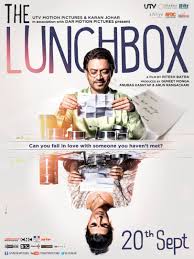
National award for best film, best acting, best background score, best cinematography- and also India’s official entry to the Oscars… I thought that it would be tough for this Malayalam film to keep up to my expectations… Also after hearing the story line- the struggle of an old perfume seller and wife trying to raise ‘legitimate’ and ‘Halaal’ (allowed by religion) money for doing Hajj pilgrimage- my initial reaction was- ‘is there enough story for making a film here?’ Guess I am too spoilt by a very complex concept of screenplay.
But after watching the film, I realised that however desperately I want to, I would not be able to write such a film. I would be too plagued by doubts. Shouldn’t there be more plot elements? Shouldn’t there be more plot progression? Is the story moving really well enough? Can’t the audience guess what is coming? In the process (of mine), what gets butchered is simplicity and relatability. And this movie was a lesson for me that if you have a human situation which connects well with the audience, you don’t need a complex plot to keep the audience engaged. Adaminte Makan Abu is a film where most can guess the inevitable outcome of the protagonist’s struggles before hand. But the lyrical rendering of it still makes the movie very endearing. There are so many scenes in the movie which would have ended up as cliches in the hands of a lesser film maker (help offers from different strangers, the meeting with an old enemy, the ease with which the rich practices religion etc). But in every instance, the writer-director comes up with a dialogue, a situation or something else which connects.
I liked the mystical tone of the whole story (even though I felt that the conversations between Abu and the ‘Ustad’ went a little overboard). The visuals really helped to consolidate the ambience of the movie. It also gives a certain timeless feeling to the whole story.
I sincerely hope that it makes some head way at the Oscars. But at the same time I have a feeling that it is not the kind of film the Oscar crowd is going to be particularly mad about.

